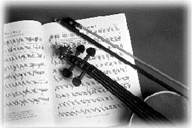
題目列表(包括答案和解析)
Old Behrman was a painter but was a failure in art. For years, he had always been planning to paint a work of art, but had never yet begun it. He earned a little money by serving as a model to artists who could not pay for a professional model. He was a fierce, little, old man who protected the two young women in the studio apartment above him.
Sue found Behrman in his room. In one area was a blank canvas(畫布) that had been waiting twenty – five years for the first line of paint. Sue told him about Johnsy and how she feared that her friend would float away like a leaf on the old ivy vine climbing hopelessly up the outside block wall.
Old BeYucman was angered at such an idea. “ Are there people in the world with the foolishness to die because leaves drop off a vine?”
“She is very sick ,” said Sue, “and the disease has left her mind full of strange ideas.”
“This is not any place in which one so good as Miss Johnsy shall lie sick, “ yelled Behrman . “Some day I will Paint a masterpiece,and we shall all go away.”
Johnsy was sleeping when they went upstairs. Sue pulled the shade down to cover the window. She and Behrman went into the other room. They looked out a window fearfully at the ivy vine. Then they looked at each other without speaking. Beluman sat and posed as the miner.
The next morning, Sue awoke after an hour’ s sleep. She found Johnsy with wide – open eyes staring at the covered window.
“Pull up the shade; I want to see,” she ordered, quietly. Sue obeyed.
Despite the strong wind, yet there was one ivy leaf against the wall. It was the last one on the vine. It was still dark green at the center. But its edges were colored with the yellow. “It is the last one,” said Johnsy.“I thought it would surely fall during the night. It will fall today and I shall die at the same time.”
“Dear, dear!” said Sue,“Think of me, if you won’t think of yourself. What would I do?”
But Johnsy did not answer.
The next moming, when it was light, Johnsy demanded that the window shade be raised. The ivy leaf was still there.
“I’ ve been a bad girl, “ said Johnsy , “Something has made that last leaf stay there to show me how bad I was. It is wrong to want to die. You may bring me a little soup now.”
An hour later she said: “Someday I hope to paint the Bay of Naples.”
Later in the day, the doctor came, and Sue talked to him in the hallway.
“Even chances. With good care, you’ll win, “ said the doctor. “And now I must see another case I have in your building. Behrman, his name is-some kind of an artist, I believe. Pneumonia(肺炎),too. He is an old, weak man and his case is severe. There is no hope for him; but he goes to the hospital today to ease his pain.”
The next day , the doctor said to Sue:“She’ s out of danger. You won..”
“I have something to tell you, Johnsy, “ she said.“Behrman died today. And look out the window, dear, at the last ivy leaf on the wall. Didn’ t you wonder why it never moved when the wind blew? Ah, darling, it is Behrman’ s masterpiece—he painted it there the night that the last leaf fell.”
75. What was in Johnsy’ s mind all the time?
A. When the last leaf falls I must go.
B. The old ivy leaves have little to do with my getting well.
C. I am such a bad girl as to make everything messy.
D. Someday I hope to paint a masterpiece.
76. Which detail in the passage suggests that Behnnan was a failure?
A. He worked as a miner to make ends meet.
B. His drawing board had waited 25 years to receive the first line of his masterpiece
C. He was protective of the two girls but mostly sensitive and fierce.
D. He was a professional model waiting for his great opportunity.
77. We can learn from the story that_____.
A. The relationship between the two artist girls was developed on material comfort
B. The three artists mentioned in the story shared a studio apartment
C.Behnnan showed great sympathy for the two youth
D. Johnsy was somehow annoyed to be accompanied by a never – succeeded artist
78. What does the underlined part “Even chances.” mean ?
A. The doctor indicated that Johnsy was doomed to die.
B.The doctor thought that they should let her go.
C. The doctor believed that Johnsy had every chance of recovery
D. The doctor put her chances at fifty – fifty.
79. When Johnsy said she had been a bad girl, she meant that_____.
A. asking for death was not right
B. she deserved more severe punishment
C. she should never forget about her dream.
D. she was ashamed not to be able to support the other two.
80. The short story can be listed as a typical example of stories with_____.
A. surprise endings B. vivid contrasts ( 對(duì)比)
C. artistic imagination D. attractive openings

| |||||||||||||||||||||||||||||||||||||||||||||||||||||||||||||||||||||||||||||||||||||||||||||||||||||||||||||||||||||||||||||||||||||||||||||||||||||||||||||||||||||||||||||||||||||||||||||||||||||||||||||||||||||||||||||||||||||||||||||||||||||||||||||||||||||||||||||||||||||||||||
| |||||||||||||||||||||||||||||||||||||||||||||||||||||||||||||||||||||||||||||||||||||||||||||||||||||||||||||||||||||||||||||||||||||||||||||||||||||||||||||||||||||||||||||||||||||||||||||||||||||||||||||||||||||||||||||||||||||||||||||||||||||||||||||||||||||||||||||||||||||||||||
百度致信 - 練習(xí)冊(cè)列表 - 試題列表
湖北省互聯(lián)網(wǎng)違法和不良信息舉報(bào)平臺(tái) | 網(wǎng)上有害信息舉報(bào)專區(qū) | 電信詐騙舉報(bào)專區(qū) | 涉歷史虛無主義有害信息舉報(bào)專區(qū) | 涉企侵權(quán)舉報(bào)專區(qū)
違法和不良信息舉報(bào)電話:027-86699610 舉報(bào)郵箱:58377363@163.com